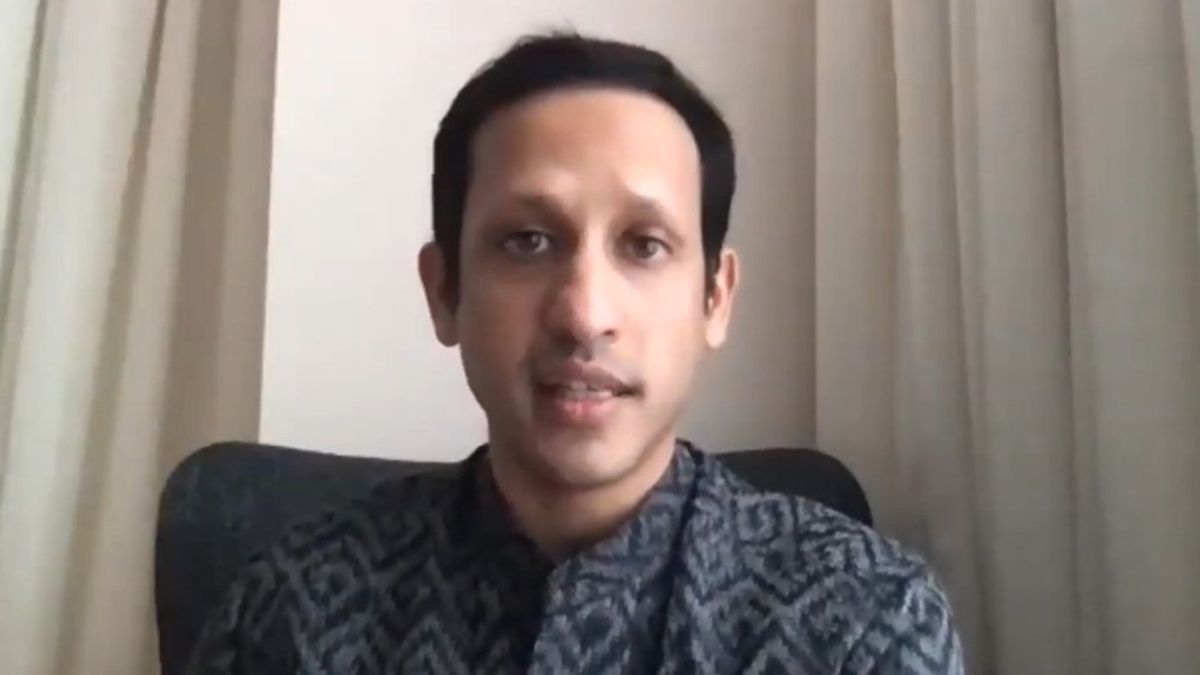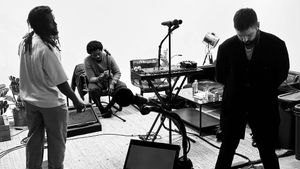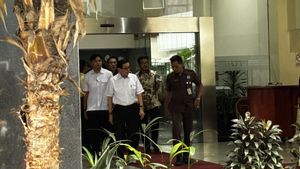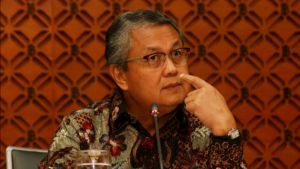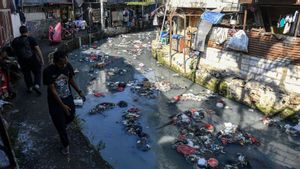JAKARTA - Minister of Education and Culture (Mendikbud) Nadiem Makarim reminded that schools that are allowed to conduct face-to-face learning must comply with health protocols. Even though the area is included in the green zone for COVID-19.
Nadiem asked, when students started school they could not play and interact outside of class hours. Any activity other than studying may not be undertaken within two months or during the transition period.
"During the transition period, students are only allowed to enter the classroom and go straight home. Activities where children from various classes gather such as in the canteen are not allowed during the first 2 months," Nadiem said in a virtual press conference, Monday, June 15.
Then, there is an obligation to provide COVID-19 prevention facilities and routine supervision that must be carried out by schools during student learning activities. The school must ensure the availability of hygiene facilities, such as hand washing facilities using soap or hand sanitizer.
"Sports, extracurricular activities, and other activities are also not allowed during the transition period. In principle, any activities that mix one class and another class are not allowed in the transition period," he said.
In addition, all school residents must also wear masks and check their body temperature at school. If there are students who are sick, they are prohibited from attending school.
"In fact, if someone's family is sick or having the flu, the child is not allowed to enter. Teachers and parents who have a risk of comorbidity should not go to school first," said Nadiem.
Learning guide in the green zone
Meanwhile, only 6 percent or 85 cities are allowed to do face-to-face learning throughout Indonesia. The remaining 94 percent or 429 other regions still do not allow face-to-face schools. Because it is included in the yellow, orange, and red zone.
In areas with green zone status, Nadiem divides two phases of face-to-face learning. First, learning in the transitional period for the first two months. If the learning condition is still declared safe from the spread of COVID-19, it will continue to the second phase, namely a new habit period.
First, learning in the transitional period for the first two months. If the learning condition is still declared safe from the spread of COVID-19, it will continue to the second phase, namely a new habit period.
During the transition period, educational institutions that can conduct face-to-face learning in July are SMA, SMK, MA, MAK, SMTK, and SMP, Package C, Package B, and other upper and middle level agencies.
"After two months, if everything is still OK, the zone category is still green, then they can open SD, MI and SLB," said Nadiem.
Then, Early Childhood Education (PAUD) is the last educational institution allowed to carry out face-to-face learning activities. The time is about 5 months from the new school year.
Nadiem requires educational institutions to regulate classroom conditions which will later carry out face-to-face learning. In secondary, basic, and special schools, there must be a minimum guarding distance of 1.5 meters. Meanwhile, PAUD must apply a minimum distance of 3 meters.
The number of days and hours of study is also limited by the shift system. This division is determined by each educational unit based on their respective situations and needs.
In the shift arrangement for primary, secondary and special schools, the class room capacity is reduced by 50 percent. Meanwhile, in PAUD, it can only be around 30 percent of the capacity of students in one shift .
"However, once there are additional cases or the level of regional risk increases, the education unit must be closed again," said Nadiem.
Meanwhile, boarding schools and madrasah in the green zone still have to carry out learning activities from home and are prohibited from opening dormitories and face-to-face learning during the transition period (the first two months).
The English, Chinese, Japanese, Arabic, and French versions are automatically generated by the AI. So there may still be inaccuracies in translating, please always see Indonesian as our main language. (system supported by DigitalSiber.id)
